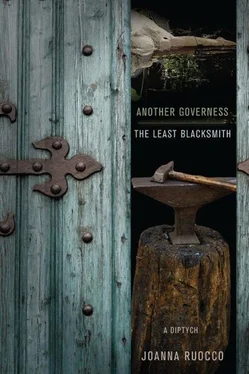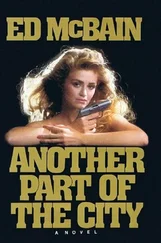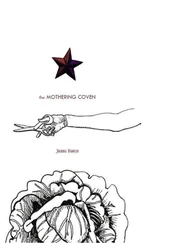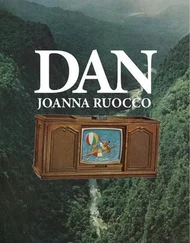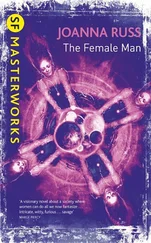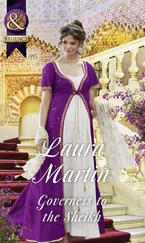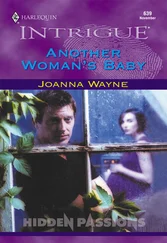Get up, I say. Get up. Open your books. We will study rocks. The children do not move. I move. I pace. The children do not move. I rub my wrists together. I rub my wrists on the back of my neck. The nursery is damp. The walls are made of stone. The stone drips. Along the tops of the walls, women's faces. The faces are gray. They are gray masks of faces, gray masks in the masonry along the tops of the walls. The mouths are open like the mouth of the fireplace. We will study rocks, I say. Geology, says Spot. We study Geology. Tamworth says a word. I do not look at her. Her dress does not cover her thighs. The seams have ripped below her arms and the flesh of her breasts presses through the gaps. Tamworth says the word. She says the word. She says the word. Stop it, I say. Jasper, says Tamworth. Jasper. Jasper. Jasper, said the knife. Jasper. I scraped the bristles off the pigs. I was wet. I breathed hard. The steam burned my hands. The hot water ran over the skins of the pigs, loosening the bristles. I scraped deep. I scraped beneath the bristles and the skin came up in peels. There was no blood. The blood had drained through the necks. The blood had soaked into the straw. The blood had flowed into the road. The blood had filled the ditches in the road. First, the poleax through the skulls. Then the slits in the necks. Then the blood in the straw. Then the blood in the road. I scalded the pigs. I heaved the kettles. My hands burned. I used the knife. I used the candlestick. The knife said, jasper. The candlestick said, jasper. I breathed hard. White hairs clung to my arms, my skirt. I itched. The breath came hard through my teeth. It said, jasper. Jasper. The water was cooking the flesh beneath the skins. I was hungry. The flesh beneath the skins was almost cooked. The bristles were loosening. The skin was loosening. I could smell the hard flesh of the pig beneath the skin. The smell was thick and hot. I vomited into the straw and the dirty white mush lay on top of the blood. I lay down in the straw. It was wet. I heard screaming. The pigs were dead, but I heard screaming. The screaming was loud. I kicked the pigs. The pigs were hard. They were heavy and still. Each kick pushed my body backwards through the straw. My spine scraped through the straw. I kicked again and again. I pushed against the pigs with my heels but the pigs did not move. I slid through the straw. My skin came up in peels. The back of my head rubbed the straw, the dirt beneath the straw. Hot water was pouring on my breasts. I screamed. I could see the man who poured the water through the steam. I tried to crawl through the straw. I tried to hide between the bodies of the pigs, wedged between the pigs, my face pressed to the faces of the pigs. The nooses lashed around the snouts of the pigs burned my cheeks. I put my hands on my cheeks and my knuckles touched the teeth of the pigs through their lips.
The lesson is spoiled. I say, the lesson is spoiled. There will be no more lesson. We will sit on the carpet. Don't move, I say. Don't move. You are a rock. We are rocks in the nursery. We are clods of dirt in the nursery. This is the new lesson, I say. We are very still. We are quiet and still. Yes, says Tamworth. She wiggles. She plays with the threads on Spot's mouth. They are white threads. They stretch from the skin in the corners of his lips. They stretch thin between Tamworth's fingers and the lips. Tamworth rolls a white thread into a ball between her fingers. Spot picks at a piece of skin in the middle of his lip. He picks at a thread in the corner of his lips. He looks at Tamworth's fingers, the motions of her fingers as she rolls the thread. Tamworth is very close to Spot on the carpet. I am very close to Spot on the carpet. We are still, I say. We are quiet and still. Spot breathes out. It is wet. The wet breath wiggles the skin, the threads on his lips. I look at Spot's lips. I hold my hand in front of Spot's lips to feel the thickness of the breath. I don't touch the lips. I hold my hand close. The wet is very thick. It is a clod. Spot pushes the clod from his mouth. He pushes the clod from his mouth. His shoulders go up and down. We are still. Tamworth puts her head on her knees. She is still. She turns her head to the side. Her nostril pulls wide. A squealing noise is coming from the crib. Give it ragbaby, says Tamworth. Ragbaby, says Spot. Ragbaby. You are rocks, I say. Rocks on the carpet. We are heavy and still. We can be hit with a stick. We can be hit with a knife. We do not move. Tamworth's knees are white and round. Her face is white and wet. Her cheek is flat on her knees. Tamworth moves her dull eyes back and forth. I see Spot's fingers dart out fast and twist the flap that hangs from Tamworth's arm. Tamworth makes a sound. Wetness runs from the flattened mouth. The squealing noise is louder. In a grand house, there are rocks on the carpet. There is offal on the staircase. There are hams in the chimney. There are pigs in the crib. I want a hot slice of ham. I am very hungry. The cook must come to the nursery. She must come up the staircase. Do you hear cook? I say. Do you hear cook? In the hall, I hear blows. I hear cries. It is the Master. I will go to him. I will not. He will notice my dark hair, my long face. The dress hangs on me. The loose threads hold the dirt. I shake my dress. I scatter my dirt on the carpet. The carpet is a field. The Master is an old man. When he was young, he was a farmer. He farmed a field. He rode a horse. He had short, fat arms. No, the Master is not a farmer. He gets his milk from the farmer. He gets white milk from the farmer. The girls bring the milk from the dairy. The milk is brown. The milk has turned. The girls walk on the road with the milk. They lie down in the ditches. Flies settle on the milk while the girls lie in the ditches. They are rocks in the ditches. The sun is hot on the milk. The men block the sun for the girls. They block the sun. The girls fill their mouths to keep out the men. They put dirt in their mouths. They are rocks. They are clods. They gag. They spit dirt in the milk. The men cast shade in the ditches. The Master waits for the milk. The cook waits for the milk. The children wait for the cook. They wait for the lesson to end. They are little lambs. They are little ducks. They are little pigs. Dear little pigs. No, they are not pigs. The Mistress did not call them pigs. They are pups. She called them pups. Her own darling pups. In the nursery, I must finish the lesson. Spot pushes with his breath. He pushes. I am wet. I shut my eyes. Spot lies across me. Tamworth lies across me. I feel the hard tips of their fingers through my dress, pulling the buttons on my dress. I wiggle. We must be still. Spot and Tamworth must be still. They lie across me. My teats are wet. My tongue is short and wet. I lap the pups. My tongue is short and wet. I move my wet mouth rapidly against the pups, the wiggling limbs and necks of the pups. My teats give milk. They give no milk. The milk comes from the dairy. The children drink milk. They eat cakes. The governess watches them eat. Her skin shines with grease. Her hair shines with grease. Her skin has spots. She plays with her spots while they eat.
The vicar had a daughter. The vicar's daughter sang behind a hedge. The vicar's daughter sang like a linnet. She took a large book behind the hedge. She took a cup of overdrawn tea. Hours are always passing. The books are bound in buckram. The little book is mensuration. The large book, voyages and lives. The vicar's daughter sang. The poplars swayed. The vicar was afloat in the mill pond. His clothes were folded on a stone. The tea grew very dark and cold. The vicar's daughter climbed into the gig. Linnets sang along the roadway. Beside the manse, the children played with sticks and cords. They tipped her trunk. They dragged her dresses through the mud. They struck her face with clods. Hours are always passing. The large girl is Mistress Ann. The little boy is Master Charles. The vicar's daughter crawled into the fire. She held a little, singeing book. She chased the children through the mole traps in the garden. She ran behind the peat house. She followed sounds into the stables. The vicar's daughter climbed upon a three-legged stool. She cut the dog down from the beam. The dog sagged. The rope thudded on the straw. Weasels were nailed to the fence posts. The mole traps swarmed with flies. Down the wooded bank, primroses peeked from twisted roots. The vicar's daughter sang. She sat in the brook. The boy stopped kicking beneath her. The water felt good. The vicar's daughter let the water numb her hands.
Читать дальше
